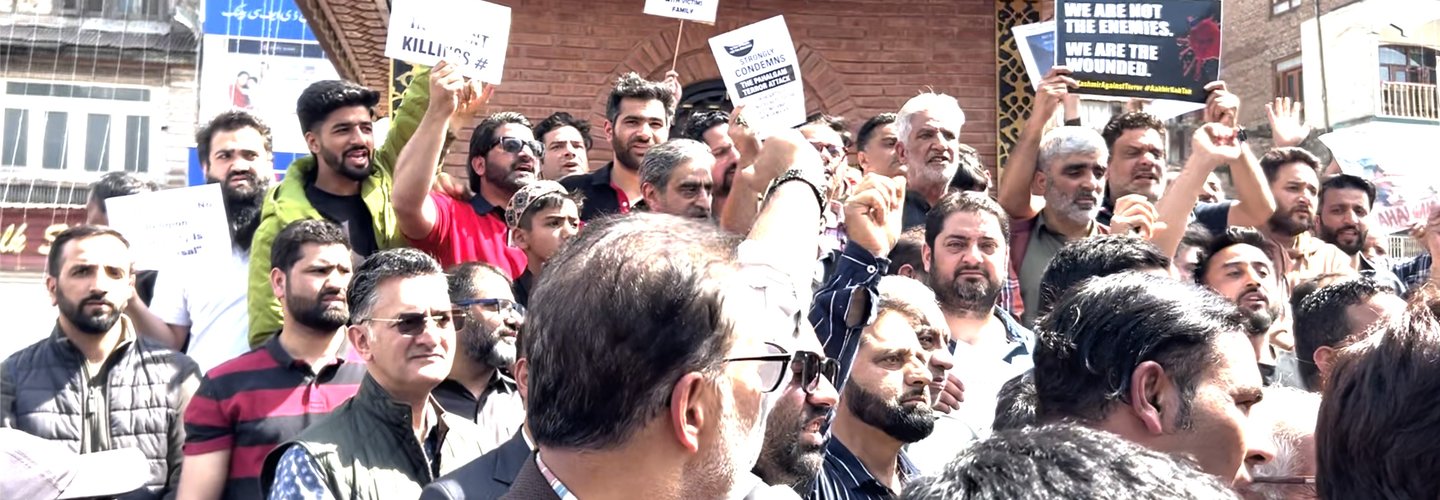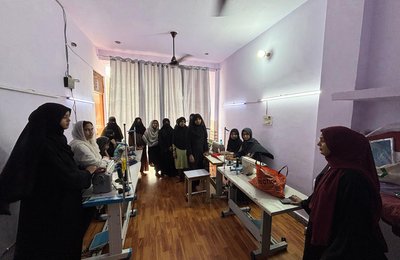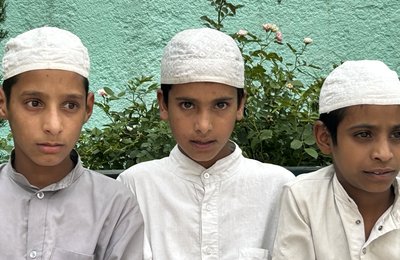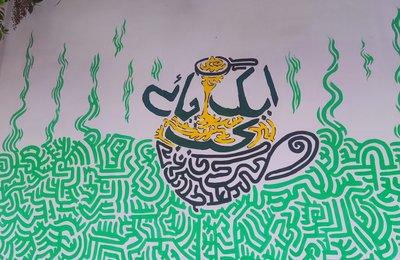Beyond binaries towards coexistence: Memory, silence and the many faces of Kashmir
Ashima Kaul, Local Correspondent for Peace Insight, writes about the aftermath of the Pahalgam terror attack in Kashmir, and the need to avoid the trap of binaries and suspicion set by extremists.

22 April 2025 began like any other day in Kashmir – sunny and serene after days of rain. I headed to a Hindu temple in downtown Srinagar, whose caretaker is a local Muslim man named Ahmed*. We had arranged to meet after I received his contact from a temple trustee.
By 2:30pm, I reached the temple, offered my prayers, and sat down with Ahmed. For the next hour, he spoke quietly but passionately about his devotion to ‘Baba’, the temple deity. “I’m a staunch Muslim,” he said. “I offer namaz five times a day and don’t come here on Fridays.” His faith, shaped by a childhood blessed by a local Swami (a Hindu religious teacher) and memories of harmony between Muslims and Hindu Pandits, has deep roots. His presence felt like a quiet affirmation of shared heritage.
As I stepped out and checked my phone, a message hit me like a jolt: “Terrorist attack on tourists in Pahalgam.” A group of Hindu tourists in Pahalgam, in the Baisaran Valley, had reportedly been singled out, asked to recite the Kalima – a sacred Islamic declaration – and massacred. Twenty-seven people were killed at point-blank range.
I was shaken. While I sat with Ahmed – whose piety and peace bore witness to coexistence – others, invoking the same religion, were unleashing barbarity. It felt like standing at the fault line of Kashmir’s moral contradictions.
Painful history
The Pahalgam attack wasn’t unprecedented. Since the 1990s, Jammu and Kashmir has seen several massacres of Hindus. Tourists, too, have been targeted. In 1995, six Westerners were kidnapped by Harkat-ul-Ansar militants near Pahalgam. One was beheaded; others disappeared. In 2018, Tamil Nadu tourist R Thirumani was killed by stone-pelters. Journalist Saleem Pandit, who reported on such attacks, was threatened and vilified, later recounting the experience in his book, ‘Journey Through the Mist’.
I personally witnessed a terrifying incident in 2017 during the Urs at Aishmuqam shrine.
As I watched the Damali (sacred dance), supporters of the terrorist Zakir Musa stormed in and opened fire. Tourists were attacked, and the area plunged into chaos. On the route back to Srinagar, the violence continued. Stones were pelted by young local sympathisers and militants, who had attacked both police and tourists, claiming that Sufi traditions and the cultural influences brought by outsiders undermined their vision of religious purity.
Then there’s the Amarnath Yatra – India’s most spiritually significant pilgrimage – which terrorists have repeatedly targeted since 1993. The intent of the terrorists has always been more than just violence: it is a campaign of erasure.
But alongside this grim history is another, too often ignored, narrative: of Kashmiri Muslims who risk their lives to protect others. During the Pahalgam attack, pony-wala Syed Adil Hussain died saving tourists. Local guides helped others flee. Many Kashmiris serve in the Indian Army, Central Reserve Police Force (CRPF) and local police, standing against terrorism daily.
To equate all Kashmiris with terrorists is not only unjust – it erases truth and humanity. The real conflict is not between religions, as is often projected, but between ideologies, political outlooks, and goals, between those who divide and those who connect.
Truth and justice
As Gowhar, a hotelier at Lal Chowk, said in grief: “We cannot let these terrorists win. All Kashmiris – government, politicians and citizens – must unite for a collective response.”
Umar, a podcaster from Tral, echoed this: “They didn’t just target Hindus – they attacked the soul of Islam and our Kashmiri identity.”
However, Dr Sushma Shalla Kaul, a Kashmiri Pandit whose father was brutally killed in 1990, puts it plainly: “A question will continue to haunt the conscience of Kashmiri Muslims until there is an honest acknowledgment of the crimes committed against the Pandits. Their culpability and silence remain deeply troubling. Without this reckoning, healing remains incomplete.”
This is the reckoning Kashmir needs – an internal moral audit that does not sweep away pain with calls for peace, but understands peace as impossible without justice.
And the layers of Kashmir’s story don’t end there. In 2017, I was filming in Shopian, making short videos on the transformative experiences of a young person who had participated in my organisation’s healing and transformation workshop. A group of local boys approached us. We were on land once owned by a Pandit family. The boys reacted angrily when I expressed a longing to return. “This is Muslim land,” they said. “We won’t allow Pandits back.” Their anger was a mix of indoctrination, propaganda, and historical pain. But their words struck like a blow: they erased the possibility of coexistence that Ahmed’s presence at the temple so powerfully embodies.
There are many people like Ahmed in Kashmir. Quiet custodians of memory and bridges across divides. They do not make headlines. They hold shrines for others. They whisper back to hate with acts of everyday grace. Their lives are quiet rebuttals to the gunfire that shattered Pahalgam.
The real choice facing us is not Hindu versus Muslim, or Kashmiri versus outsider. It is between truth and denial, memory and amnesia, dialogue and propaganda.
In the aftermath of the Pahalgam massacre, something shifted. I drove across Srinagar, Bandipora, and Ganderbal the next day and saw shops closed in protest. Ordinary citizens, hoteliers, lawyers, even congregants at the Jamia Masjid observed silence. It was perhaps the first time that “terrorists” was a word used openly by youth in Tral – a town far from the tourist circuit.
Beyond binaries
This collective mourning matters. It is a glimmer of hope that Kashmiris may be moving from silent endurance of violence to open rejection of it. It also offers us a chance: to build a moral coalition that opposes all forms of extremism – Hinduphobia, Islamophobia, and every ideology that kills in the name of purity.
There is an urgent need for Kashmiri Muslims to acknowledge the conditions that led to the exodus of the Kashmiri Pandits, the Muslim role in it, and accept the tragedy of Kashmiri Pandits in order to open a conversation for their dignified return.
But let us be careful. As grief turns to outrage, especially post Pahalgam terror attack, there is a temptation to generalise – to turn every Kashmiri into a suspect, every Muslim into a threat. This is the trap set by extremists, where suspicion replaces solidarity. Such responses not only betray our constitutional values, they strengthen the very narrative of victimhood that radical ideologues thrive on.
Kashmir deserves better than binaries. It deserves justice and truth.
* Name changed.








